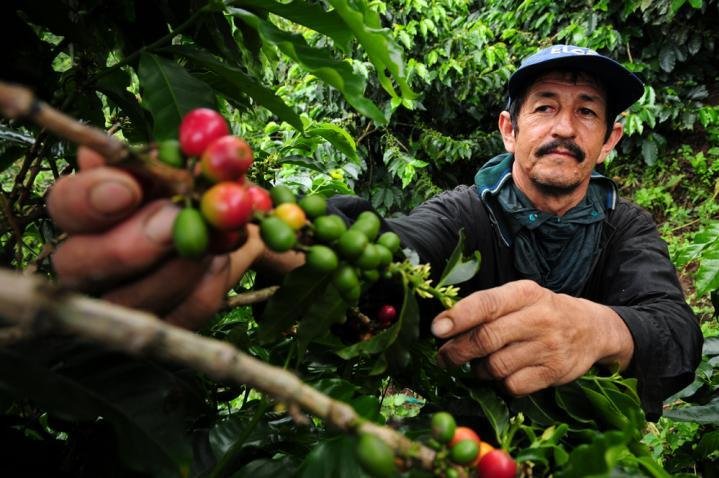A coffee farmer picks fresh coffee cherries in Colombia. New climate research suggests Latin America will face major declines in coffee-growing regions, as well as bees, which help coffee to grow. Photo by Neil Palmer
Sept. 11 (UPI) -- A recent study by the University of Vermont found global warming could reduce coffee growing areas in Latin America by as much as 88 percent by 2050.
Researchers from the University of Vermont's Gund Institute for Environment found climate change will continue to negatively impact coffee production, as well as bee populations, essential to coffee farming.
"Coffee is one of the most valuable commodities on earth, and needs a suitable climate and pollinating bees to produce well," Taylor Ricketts, director of the UVM's Gund Institute for Environment, said in a press release. "This is the first study to show how both will likely change under global warming -- in ways that will hit coffee producers hard."
The study, published today in the Proceedings of the National Academy of Sciences, is the first to analyze the coupled effects of climate change on coffee and bees at the national or continental level.
Researchers predict much greater losses of coffee regions than previous assessments, with the biggest impacts in Nicaragua, Honduras and Venezuela.
On the positive side, researchers project a slight increase in coffee suitability in Mexico, Colombia, Costa Rica and Guatemala -- mostly in mountainous regions where temperatures can support coffee growing and robust bee populations.
"If there are bees in the coffee plots, they are very efficient and very good at pollinating, so productivity increases and also berry weight," Pablo Imbach, of the International Center for Tropical Agriculture, said. "In the areas projected to lose coffee suitability, we wanted to know whether that loss could be offset by bees."
The study identified some strategies to improve coffee growth and bee pollination, including the increase of bee habitats near coffee farms where bee diversity may decrease. Policy makers could also prioritize farming practices that reduce climate impacts on coffee production where bees are thriving, and protect forests and main shade trees, windbreaks, live fences and native plants.
"We hope the models we have created to make these projections can help to target appropriate management practices such as forest conservation, shade adjustment and crop rotation," Lee Hannah, senior scientist at Conservation International, said.















